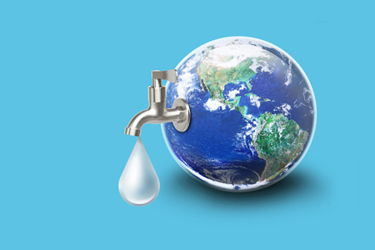The Ethics Of Water Rights: Balancing Human Needs With Environmental Conservation
By Ellie Gabel

Water and wastewater professionals need to know about rights just as much as landowners, especially regarding environmental considerations. Water conservation is top of mind as more areas worldwide are subject to intense scarcity. Becoming familiar with these regulations will ensure waterways stay healthy, preserved, and full so those who need it can access them.
What Rights Issues Impact Wastewater Professionals?
Industry experts need to know how laws and rights impact citizens and how this relates to their work. Regulations vary depending on the state in the U.S. and become even more complex compared to other countries.
Riparian Rights
Riparian rights are some of the most common. These allow landowners to use water on their property in reasonable ways. Professionals should still find ways to monitor connected waterways to ensure people are not mistreating or polluting what they have access to. Awareness of these activities informs workers how much water they need to conserve based on availability.
Prior Appropriation
Prior appropriation rights give precedent to those who first used the water for a beneficial purpose, which could be an individual or entity. Wastewater experts need to map their zones to ensure they do not infringe on areas they are not allowed. They must save as much water as possible without relying on these assets.
Groundwater Rights
Wastewater workers and treatment plants also need to consider groundwater rights, which provide specific guidance on who can extract underground resources and in what quantities. Conservation easements are voluntary agreements landowners and agencies can make to observe these stores. These could help stressed areas like the Midwest aquifer spanning over eight states.
Employees should monitor these reserves so people can rely on them in case of an emergency. They should also understand the impacts of their operations and prevent stressors and pollutants from harming groundwater.
Additional Considerations
Federal and state regulations can sometimes provide specific guidance. For example, the Clean Water Act tells landowners and corporations how to respect and use resources sustainably. These regulations require compliance — otherwise, companies may receive penalties and fines.
Plants and their workers should also respect tribal water rights. Indigenous communities lay claim over their waterways, and employees must receive training to be aware of how to engage with these communities respectfully in accordance with their cultures.
Experts may also want to consider how someone’s water rights impact their ownership over other aspects of the property. For example, mineral rights allow landowners a stake in everything from oil to rocks. Anyone who owns less than 100% owns a fractional share, which is often divided among inherited family members living in many locations.
How Can Experts Balance Ethics With Conservation?
How do these frameworks inform water workers’ sustainable and conservation efforts? These are the best practices to incorporate to prevent overconsumption and contamination.
Integrated Water Resources Management (IWRM)
IWRM is a framework water-based organizations can use to guide operations. Its mission is to create workflows and corporate practices inspired by the interconnections between sustainable management and water conservation. Brands can achieve this by following its recommendations, which use water rights and research as its foundation.
Pollution Prevention And Oversight
Firms must use a mixture of habitual changes and technology to ensure that water rights are not violated by pollution and cross-contamination. They can issue training seminars to adjust worker behaviors and use advanced equipment to monitor water quality. This includes sensor-based devices, robotics, artificial intelligence, and remotely operated machinery like drones.
Green Infrastructure
The quality of water infrastructure impacts how sustainable operations can be. Antiquated fixtures are more likely to break down, leading to waste generation or leaking rust into waterways. This is why infrastructure upgrades are critical to ensure low-flow movement and optimize transmission for efficiency.
Infrastructure also goes beyond plants. Wastewater works must advocate for water-smart installations such as permeable pavements and constructed wetlands throughout cities, among others. These enhance efforts executed at a corporate level while bringing conservation awareness to public attention daily.
Education And Advocacy
Workers need as much education as the public on water rights, climate considerations and conservation methods. This also requires shareholder engagement. A workplace culture prioritizing water conservation starts in boardrooms. They must connect with workers of all experiences and departments to communicate ethical water values.
These individuals — and anyone else working in the water sector — must then collaborate with stakeholders, including citizens, neighborhoods, and tribal organizations. If everyone is aware of the community’s goals and environmental ethics, preserving water will be more straightforward and consistent. Plants can do this by collaborating with city halls or by hosting free educational events on how to help conservation action.
The Relationship Between Water Rights And Management
Every industry is responsible for adopting corporate social responsibility efforts. Wastewater treatment professionals and their constituents need to be on the same page as local, state, and federal regulations to ensure consistency and long-term conservation.
 Ellie Gabel is a writer specializing in environmental science and innovative technologies. She can be reached at ellie@revolutionized.com.
Ellie Gabel is a writer specializing in environmental science and innovative technologies. She can be reached at ellie@revolutionized.com.
